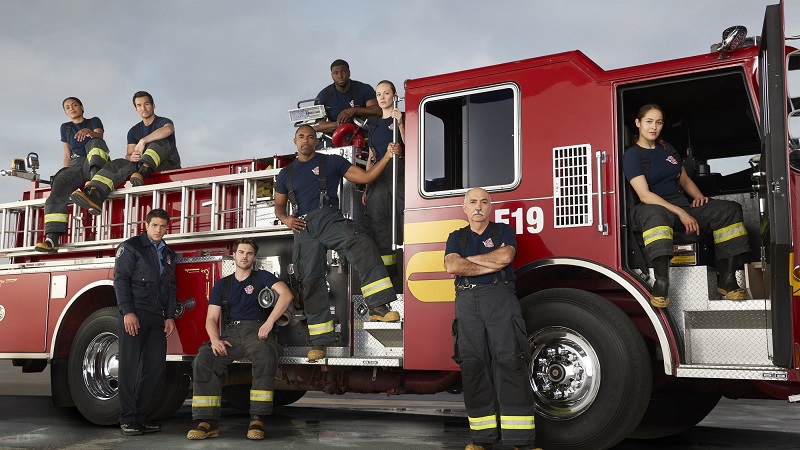

By Chief Joel F. Shults, Ed.D.
Station 19 is an ABC television nighttime soap opera set in a fictional fire station in Seattle. Along with the internal feuds and love affairs at the firehouse, the writers have taken up the pop culture themes of bad cops doing bad things, and systemic racism. As is often the case, the caricatures that develop from this fictional nest can leave viewers with a bad taste in their mouth – and not just from the overacting and soapbox soliloquies.
There are those who argue that television, once the lone star of influential media, reflects the culture and of its audience. Others claim that it creates the culture. That is a chicken or egg debate in general, but in specific, Station 19 writers and producers clearly want to project a world that doesn’t exist in order to inflame the passions of their viewers. I feel sorry for the real firefighters and police officers of Seattle, and for the minorities whose caricatures are manipulated in the series.
If soap operas are a form of art whose beauty is left to the beholder, Station 19 wants no such discretion. The 19ers aren’t just firefighters, they are a cadre of social justice warriers.
Episode 5 of the current season sets up the perfect storm. Titled “Out of Control”, the scene is the station captain’s home where the crew was invited for an after-shift get-together. Naturally, drama follows as a screaming mom brings a few of the crew running to assist. The mother, a black woman who believes her daughter is being held against her will in the home next to the captain’s party, is demanding that the homeowner open up for inspection. The panicked mother relates that she called the police, but they won’t do anything for black people. Police finally come to the scene at the homeowner’s request. The fire folks, of course, do not trust the police, citing crime statistics of black victims.
When Seattle PD shows up, they immediately assume that the black mother is hysterical. To add the necessary fire to the scenario to round out the script, a fire erupts which turns out to have been started by two captive teens to get attention to their basement imprisonment. The cops, of course, accuse the girls of burglary and arson and insensitively question them about rape while receiving oxygen from our brave 19ers. A melee breaks out as some black cast members are incensed about the stupid cops, back up arrives, guns are drawn, and the righteously enraged black firefighters are stuffed into police cars and carted away. To add insult to injury, the cops bump over a fire hose on the way to book our heroes for assault.
This is not a new theme, by the way. In an earlier episode, a violent pregnant woman assaults a firefighter, but Station 19ers doesn’t want the police there because they would escalate the situation. And, by the way, the pregnant woman is on meth, a white hillbilly, and spouts religious nonsense just to insert another stereotype.
The obvious defense of this world is the justifiable backlash of decades of a white dominated entertainment industry that stereotyped minorities and excluded opportunities for representation of BIPOC and LGBTQ characters. Indeed, from the dawn of television America grew up on white bread, middle class families. The Andy Griffith show didn’t reflect reality either with its all white and all single characters. Older sitcom reruns often make me cringe, and maybe in some intangible way harmed our true national story. Whether those barriers have been sufficiently overcome to reflect a cultural reality, it seems that replacing one fictional world that never existed with another fictional world that doesn’t exist goes beyond entertainment and edges toward propaganda. Maybe there is a fire station in Seattle with only 1 white male heterosexual in residence and no Anglo monogamous dads or moms with a stable home life. Highlighting diversity in the arts is one thing, and maybe a necessary thing. Fomenting ire against the beleaguered Seattle police department is not.
If we believe that the entertainment industry has caused harm by presenting minorities as monolithic stereotypes, we must agree that presenting police officers that way is also harmful. That doesn’t mean some officer’s feelings are hurt. It means hate filled actions that get people physically hurt.
Sure, it’s only a story. But every story has a message that is heard by someone willing to believe it. Firefighters may be the last American heroes. Let’s not make them the new intolerant breed, endorsing the idea that cops are racist incompetents.